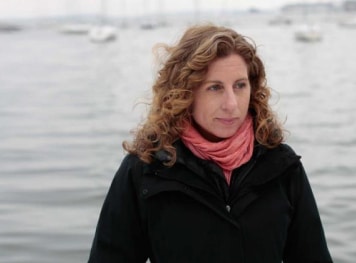
Meghan Jeans

The Red Lobster restaurant chain and the New England Aquarium may not seem like the most natural of partners, but Meghan Jeans JD’02/MSEL’03, director of the Boston-based aquarium’s Conservation Programs, is busy making a connection. Darden Restaurants—the parent company to chains such as Olive Garden, The Capitol Grille, Yard House, and Red Lobster—is committed to advancing seafood sustainability. In addition to leading the aquarium’s conservation policy efforts, Jeans marshals a diverse team of scientific and technical staff to help Darden, and other major seafood buying companies, identify practical steps towards that goal.
Unsustainable fishing and aquaculture practices pose significant threats to environmental and human health worldwide. Companies that rely on those resources are feeling mounting pressure to address these threats in a more holistic and coordinated fashion. Increasingly, corporate/NGO partnerships are becoming a key strategy for seafood-buying companies to mitigate risk and demonstrate good corporate citizenship. Meanwhile, conservation organizations like the New England Aquarium recognize that private-sector corporations can provide critical market and political leverage to influence positive changes on the water. Towards that end, the aquarium’s Sustainable Seafood Programs partners with companies—including Darden, Gorton’s Seafood, The Fresh Market, and Ahold USA (the parent company of the Giant and Stop & Shop supermarket chains), among others—to help them become better stewards of the marine resources upon which their businesses depend.
The aquarium’s team of wild fisheries and aquaculture specialists conduct environmental risk assessments of their partners’ supply chains, provide procurement recommendations, develop educational materials for staff, suppliers, and customers, and facilitate corporate support of key conservation initiatives. More and more, there is public (and sometimes shareholder) expectation that companies will utilize not only their buying power to drive change, but to flex their political muscle. The New England Aquarium facilitates corporate engagement on federal legislative and regulatory issues to strengthen fisheries management, deter illegal fishing, and improve seafood traceability.
The job involves “a little bit of everything,” said Jeans, who took the helm there in January 2012. Working at the intersection of law, policy, science, and business reflects the reality that the issues and their solutions will require a multi-disciplinary approach. “It definitely promotes ADD, “ says Jeans, laughing, “but we recognize that improving ocean health and inspiring a sense of stewardship requires that we bring a diverse range of expertise to the table.”